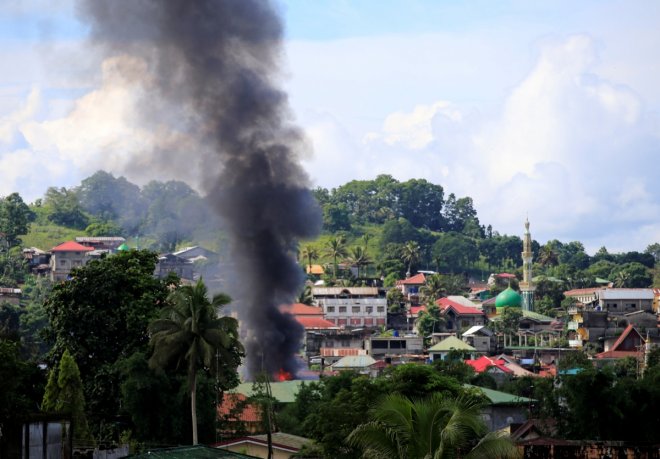
The Lanao del Sur Provincial crisis management committee (LDSPCMC) said that even though foreign and domestic organizations have signified their intention to rehabilitate battle-torn Marawi City, hostilities in the battle zone have to end first so it can start rehabilitating Marawi.
LDSPCMC spokesperson Zia Alonto Adiong said that they can't just rehabilitate Marawi until hostilities end. As the intense battle enters its 58th day, heavy exchanges of gunfire continue to grip the Islamic City of Marawi as thousands of Philippine soldiers continue to close in to what they call the nerve center of the Local Maute Terrorists Group.
The Philippine Armed Forces continue to rain artillery bombs and aerial strikes on rebels position as smoke continues to balloon from the battle zone.
While China, India and the US pledged that they are very much interested to help in the rehabilitation of Marawi, the start of the assistance might be difficult because of the on-going exchanges of gunfire.
The Philippine government said that there only 60 terrorists left in the battle zone and a number of them are rifle snipers shooting Philippine soldiers. In Manila, Philippine President Rodrigo Duterte announced that he is setting aside USD 390 million for the rehabilitation of Marawi as he apologized to Marawi residents for the war that caused huge damage to thousands of houses.
Duterte further said that he wanted Martial Law to be extended up to December 31 2017 to suppress terror and rebellion but some opposition lawmakers appealed to Duterte not to rush the extension of Martial Law.
Political economy experts are also divided on the impact of Martial Law in Mindanao. Philippine political scientist Ramon Casiple said that the extension of Martial can adversely affect businesses in Mindanao but this was refuted by the government's economic department saying that the extension of Martial Law will secure and protect the businesses of entrepreneurs in Mindanao and will eventually be beneficial to them.









